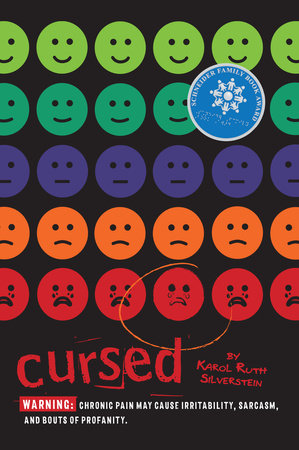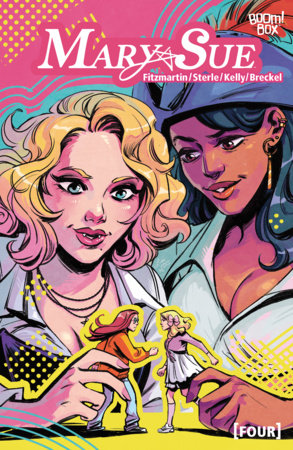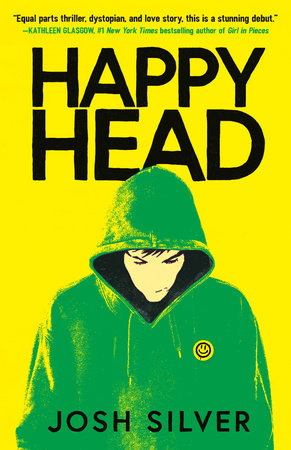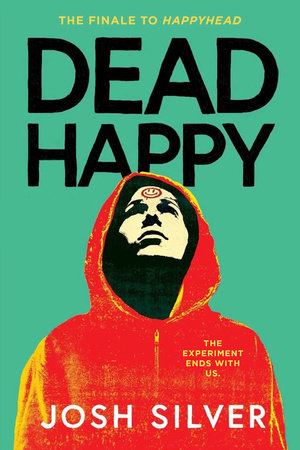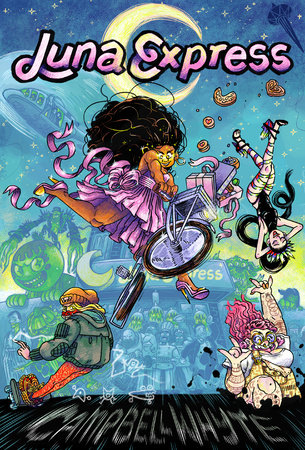A teen fights to put her life back together after developing a painful chronic illness and secretly skipping school for six weeks. Ricky lives in Philadelphia in her father’s one-room “Batch Pad,” sleeping on a lumpy “Sofa-Bed-From-Hell.” Her parents unilaterally decided she’d live there because Mom’s house, in another neighborhood, has three stories—and Ricky, as of four months ago, has juvenile arthritis. She has chronic pain—”dull and sharp,” often excruciating, her joints on fire. Her feet feel like she is walking on broken glass. So she bailed on school—the bullying didn’t help either—and, instead, waits each morning for Dad to leave, then crawls into his (non-sofa-)bed, desperate for sleep. Naturally, she’s caught. This justifiably furious kid who says “Fucking asshole!” to a teacher’s face launches “Operation Catch-Up-So-I-Can-Get-The-Hell-Out-Of-This-Crap-Ass-School”—in other words, somehow pass ninth grade. Ricky’s sharp, flowing, uninhibited voice makes this a page-turner. Her life improves: accessibility accommodations, a proper bed, agency (sometimes!), a new doctor, more treatment options. The ending’s a bit glossy, but Ricky’s pain and future aren’t romanticized. Ricky’s white and Jewish, and her family is middle-class; characters default to white, and brown skin and curly hair are sometimes exoticized. Protagonists with chronic nonmalignant pain and illness are far too rare; this does the job.
—Kirkus Reviews
High school begins with a double cataclysm for Ricky, short for Erica: her parents suddenly divorce, and she receives a diagnosis of juvenile arthritis, a very painful autoimmune disease that has her relearning how to move her body with the least amount of embarrassment. “Worse yet, no one gives a crap about this boring ass disease. It’s not something that would prompt my classmates to shave their heads in solidarity.” Brimming with rage, she skips school and lashes out at her parents and the world. Ricky’s fury moves the narrative along with an intense energy, showcasing her sardonic, foulmouthed self and drawing readers into her suffering. In time, a new doctor, a more promising medical regime, a wise classmate, helpful teacher, sister, and, yes, even her parents come through in ways Ricky will come to appreciate throughout her tough journey. Silverstein sheds a powerful light on disease and how managing it can bring out one’s inner warrior. A blistering coming-of-age tale that will propel readers into Ricky’s corner.
—Booklist
Recently diagnosed with arthritis, 14-year-old Ricky Bloom now lives in “the Batch Pad” with her dentist father and attends a new middle school in Philadelphia. Ricky begins “the Charade,” ditching school to avoid bullying and the pain of getting there. Instead she spends her time sleeping, taking hot baths, and daydreaming about Julio, a cute drummer. Embarrassed by her pain and limitations, she prefers to keep to herself; the only person she chooses to see is her older sister Dani, a college basketball player who lives with her girlfriend of three years. When Ricky’s truancy is discovered, she risks having to repeat ninth grade, which would bring more unwanted attention to her already miserable, angry days. Back to school (for real this time), she finds unlikely support from an English teacher and an adorkable guy named Oliver, a cancer survivor. These relationships and a new doctor who listens to her provide Ricky a sense of hope, allowing her to become a better version of herself. Silverstein’s debut young adult novel is an accurate portrayal of the challenging relationship between parents and teens, as well as the frustration of living with a chronic illness. VERDICT: Readers will enjoy this contemporary coming-of-age story featuring a resilient protagonist and charming plot.
—School Library Journal
First-time author Silverstein offers an insider’s view of living with a chronic illness in this heartfelt novel set in Philadelphia. Every movement has become a struggle for ninth-grader Erica (“Ricky”), recently diagnosed with juvenile arthritis, who has had to move from her mother’s house to her father’s “bachelor pad” to avoid using stairs. In constant pain, irritated by “The-Disaster-Formerly-Known-as-My-Parents,” and tired of taunts from schoolmates, Ricky vents her frustration by cutting school—for six straight weeks—and cursing copiously, both of which sit poorly with her new school’s administrators. When she’s eventually caught skipping and forced to attend classes, she faces new obstacles if she wants to make it to 10th grade, including makeup work and after-school sessions with a strict teacher. She also finds some rewards, especially learning how to advocate for herself and developing a friendship with empathic classmate Oliver, a cancer survivor. Silverstein, who was diagnosed with arthritis as a teen, excels at evoking the physical and emotional pain Ricky endures without having Ricky’s condition define her. She emerges as a likable, relatable heroine whose wit and sense of hope will prove inspiring.
—Publishers Weekly









